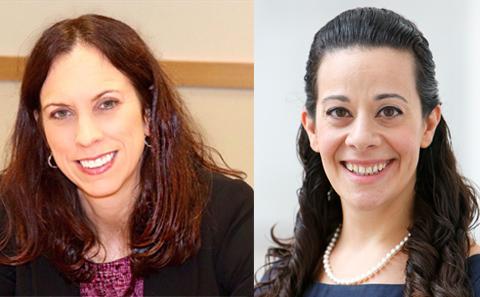Joint Lecture from Colleen Shogan & Kate Zwaard, from Library of Congress on Digital Strategy and Interactive Representation in the US Congress Event

- Time:
- 13:00 - 16:00
- Date:
- 19 July 2019
- Venue:
- University of Southampton Nightingale Building 67 Lecture Theatre 1037
Event details
The Web Science Institute and University of Southampton Library are delighted to host a joint visit and seminar from 2 key members of the Library of Congress, Washington DC on Friday 19 July.
Kate Zwaard, Director of Digital Strategy will be talking about “Incremental Progress toward Exponential Change" within the Library of Congress, AND Dr Colleen Shogan, Assistant Deputy Librarian, Collections and Services will give a talk on "Social Media and Interactive Representation in the U.S. Congress".
The visit will take place at the University of Southampton with a light lunch from 13:00 followed by talks from 14:00-16:00 with the opportunity for questions and discussion.
Please book a place today to ensure a stimulating afternoon.
Speaker information
Kate Zwaard, Director of Digital Strategy: “Incremental Progress toward Exponential Change”,Library of Congress,The Library of Congress, one of the world’s largest libraries, is also the oldest cultural heritage institution in the United States. Kate will talk about how we can responsibly innovate in our dynamic information economy in institutions whose missions necessarily mean a lower tolerance for risk. She will also describe the recent projects of the Library of Congress Labs (labs.loc.gov), which enables transformational experiences by connecting people with the Library and its digital collections and helps prototype the ideas of staff across the institution.
Dr. Colleen J. Shogan, Assistant Deputy Librarian, Collections and Services: "Media and Interactive Representation in the United States Congress",Library of Congress,Representative democracies are premised upon a single elected legislator representing a group of citizens. Political science has accepted this traditional relationship as static. States maintain single-member districts, but the adoption of social media by Members of Congress has created new interactive representational opportunities as Members and constituents utilize Twitter, Facebook, and other platforms to communicate beliefs and preferences. The previous academic understanding of representation has been built on the concept of legislative members serving as either delegates or trustees. More recently, Jane Mansbridge (2003) posited that the nature of representation has changed and must include additional dimensions. However, her models do not account for recent developments in technology and communications. The advent and adoption of social media by Members of Congress has provided an opportunity to reevaluate representation and the potential for interactivity through online platforms. Building on previous research and using recent case studies, this paper develops a new theory—interactive representation—to explain the political, institutional, and normative implications of unfettered real-time communication between Members of Congress and the electorate.